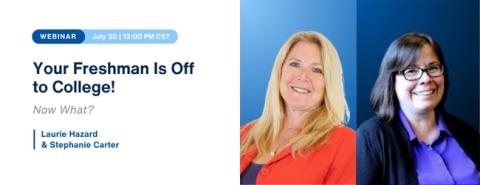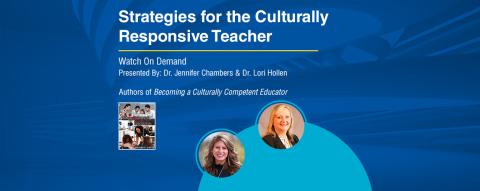
Using Support and Challenge to Increase Student Motivation and Achievement
“None of these students are going to college.”
Early in my teaching career, as a new high school math teacher walking down the hallway to my very first class, my department chair stated, “Don’t bother giving these students any homework, they won’t do it. Besides, none of them are going to college.”
I’m sure you would agree that this statement was shocking and completely inappropriate. You will be glad to know that I didn’t listen to her. However, almost 20 years later, I frequently encounter these sets of expectations for students, although in more subtle ways, but equally damaging.
I begin with this story because it helped shape my core philosophy for teaching: Provide the support that each student needs while setting expectations high.
Similar to these first high school students, I currently work with large populations of underrepresented students (e.g., first-generation students and students of color) who are entering college. Because many of these students enter college less academically prepared than their peers, many of the same assumptions and biases surface about their abilities and even motivation. I choose to ignore these assumptions and do what I have always done: provide support when needed and challenge students to excel in new ways.
Set the Expectation, Provide the Support
This philosophy influenced how I designed my first-year seminar (FYS). When I first got to my current university, I was asked to evaluate the current FYS and then either adapt the program or develop something entirely new. I recognized at that time that the current program, a 1-credit extended orientation model, was not meeting the needs of any of the stakeholders, students, faculty, and others. So, I designed a curriculum that was intended to be academically rigorous while providing the needed support.
When meeting with the leadership to get the new 3-credit program and curriculum approved, I shared the following, as they knew of my military background: when preparing troops for the field, I didn’t have them sipping margaritas by the pool. This got a chuckle but represents what we need to do for these entering students. Students can come to college with all of their friends and have all the money in the world; however, if they can’t do college-level work, they will eventually be asked to leave. As such, it is our responsibility to ensure students, and this means all students, can do the work that is expected at this level.
With these ideas in mind, I intentionally choose materials that align with this philosophy. First, in my FYS, assigned readings are purposefully at a higher level to mirror other college-level textbooks, which helps improve reading fluency and comprehension. Next, the research and literature are shared for each of the topics in the seminar. This is done for two main reasons. One, students can gain an understanding of why strategies are being recommended, that they are backed by research tied to positive achievement. It’s not just because Dr. Vaughan said this was a good thing to do.
Secondly, and this is probably even more important, the research tends to illustrate that students can learn these strategies and change the way they do things, again, with positive results. Our goal is to help students see themselves within the research and know there is successful precedence for change. Additionally, at the college level and in many of their other courses, students are expected to read and understand the research as a basis for their learning. This structure parallels these expectations.
Emphasize Application and Return on Investment
I then shift to how students can apply the information in their daily experiences. I am careful not to make light of the effort required to effectively apply this information. College is hard work and requires a high level of time and commitment. Application of this information goes well beyond tips and tricks.
Yet, I also continuously emphasize that the return on investment is so much more than earning a good grade on an exam. It can mean the difference in earning a degree that was worth their time, money and effort and starting a meaningful career with the skills that will allow them to be successful.
I will conclude with another story. I was observing an FYS class that served students who were in our TRIO program (a federally funded program for first-generation, low-income students). Just a week previously, someone had told me that their students would not be able to read the seminar’s materials or complete the required work, that it was too challenging, and as a result, would not respond or learn what’s needed. As I sat in the TRIO classroom, the faculty member was reviewing some of the ideas from the reading. She was interrupted by a student who said, “But the reading says that the attribution theory also aligns with the tenets of growth mindset.”
In my 20 plus years of working with students, I am always thrilled, but not surprised by, students’ ability and willingness to rise to the challenge!
You can find the culmination of Dr. Angela Vaughan’s teaching philosophy embodied in her publication, Educational Psychology for Learners, which provides students with a challenging, research-based approach to the First Year Seminar course:
View the publication: https://he.kendallhunt.com/vaughan_wilkinson
Visit Angela’s Website: www.advancedlearningconsulting.com



